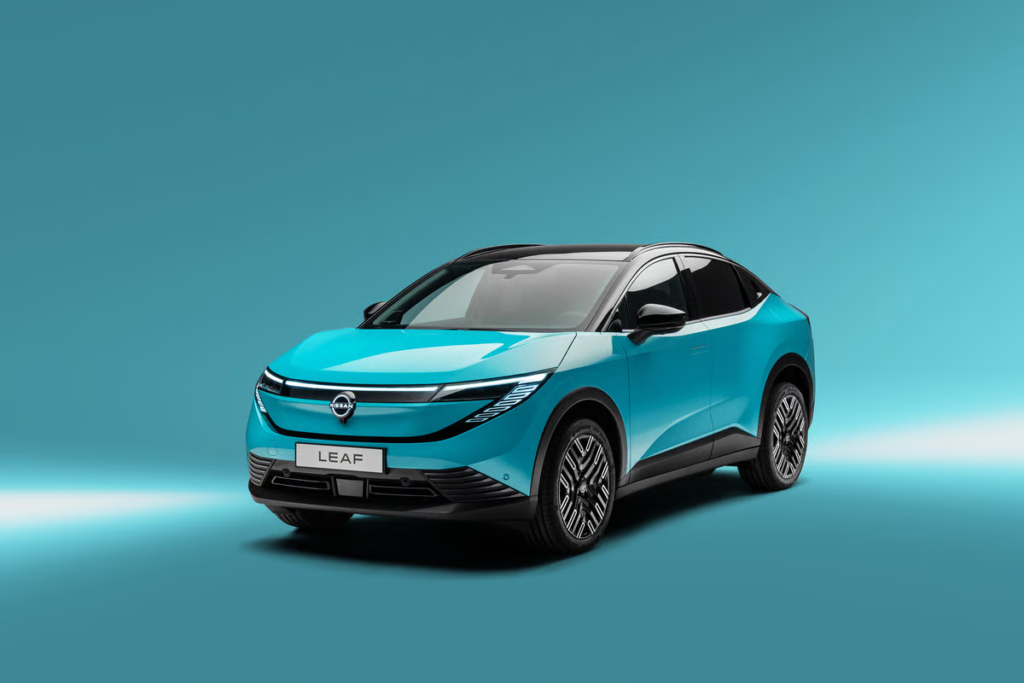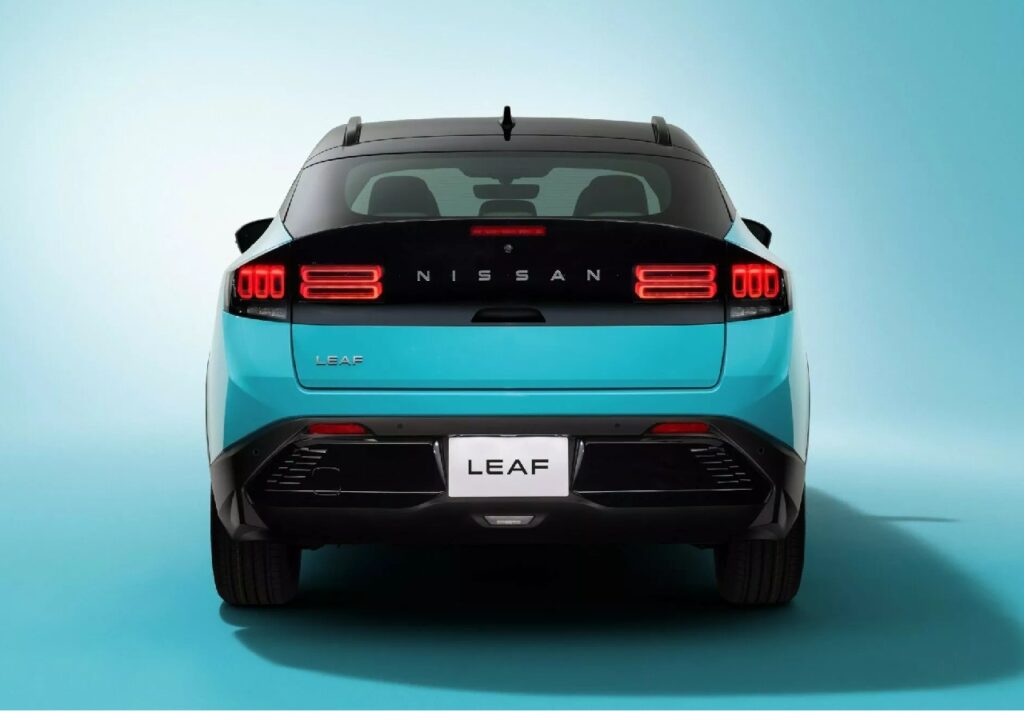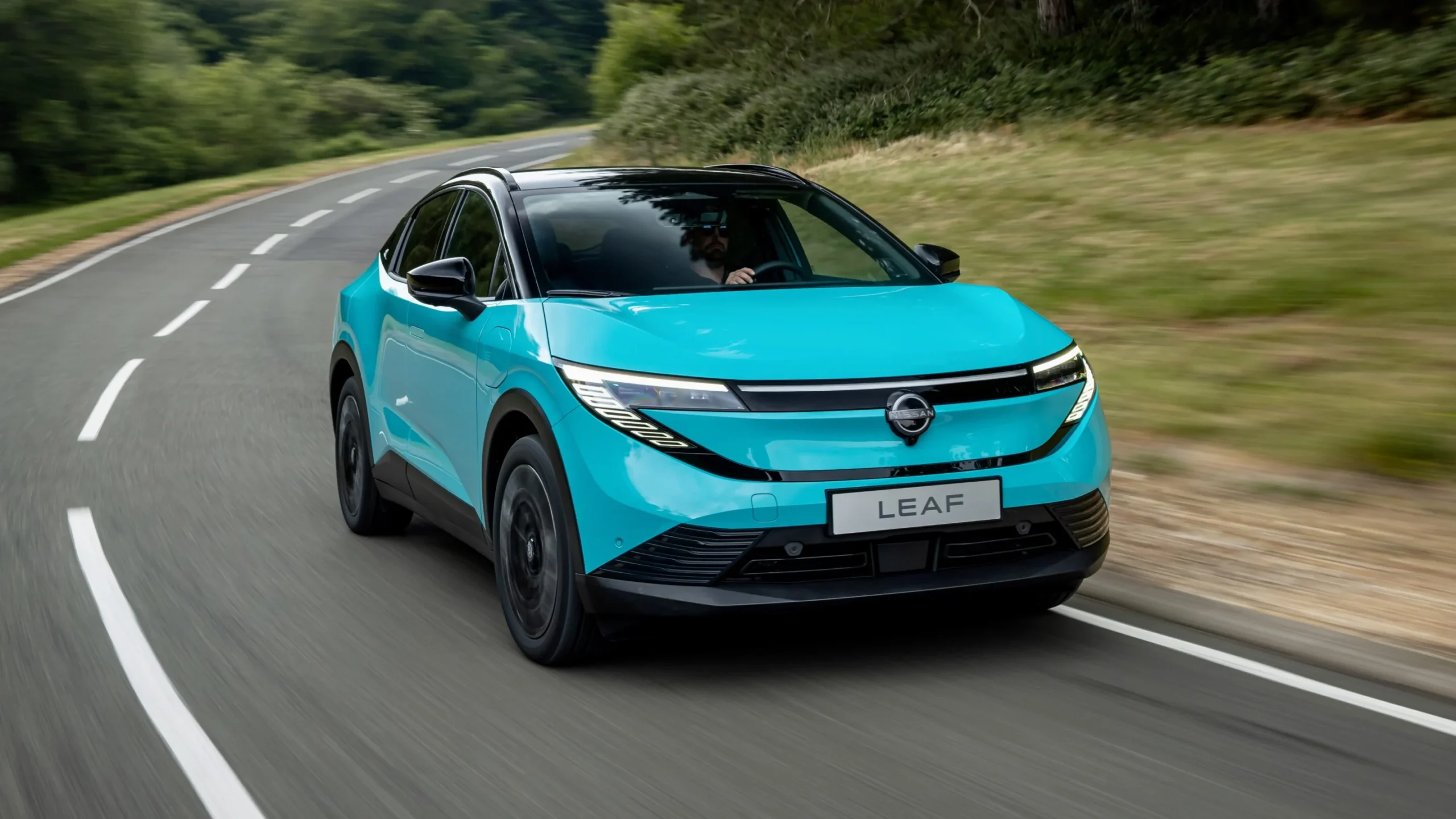We’re really excited about the launch of the all-new LEAF later this year. It builds on the success of the previous two generations, which have found homes with more than 70,000 UK customers.
James Taylor, managing director of Nissan GB.
SUNDERLAND, UK – June 18, 2025 – Nissan today unveiled the highly anticipated third-generation LEAF electric vehicle (EV), confirming that production for the European market will be done at its Sunderland plant in the United Kingdom.
The all-new LEAF, reimagined as a sleek and family-friendly crossover, promises increased maximum range of up to 375 miles on a single charge and enhanced charging speeds.
It represents the first model launched under Nissan’s ambitious EV36Zero blueprint, a comprehensive ecosystem integrating EV and battery production with renewable energy. Batteries for the new LEAF will be supplied by AESC, Britain’s newest gigafactory, strategically located adjacent to the Sunderland plant.
“It’s with immense pride that we unveil the third-generation of our pioneering electric LEAF, twelve years after we brought EV and battery manufacturing to the UK,” stated Alan Johnson, Senior Vice President of Manufacturing & Supply Chain Management at Nissan Motor Manufacturing. “It’s a testament to the skill of our world-class team that we can bring into mass production a vehicle with such advanced technology and aerodynamic design. We can’t wait to see it on the roads.”
A Legacy of EV Leadership

The LEAF holds a pioneering place in automotive history. First launched in 2010, the original Nissan LEAF was the world’s first mass-market, zero-emission electric vehicle, popularizing EVs and laying the groundwork for the industry’s rapid transformation. For years, it was the best-selling plug-in electric car globally, with close to 700,000 units sold worldwide since its inception. This new iteration seeks to build upon that enduring legacy, offering a compelling alternative for both EV enthusiasts and traditional internal combustion engine (ICE) vehicle buyers.
Nissan’s Ambitious Electric Future
The launch of the new LEAF is a cornerstone of Nissan’s broader “Re:Nissan” action plan and its long-term vision, “Nissan Ambition 2030.” This strategy aims to accelerate the electrification of its vehicle lineup, with a goal of introducing 30 new models by 2030, 16 of which will be electrified. The company is investing substantially in research and development, including advancements in all-solid-state batteries (ASSBs) and expanding its unique EV36Zero hub concept to other core markets.
James Taylor, managing director of Nissan GB, expressed enthusiasm for the new model’s impact in the UK. “We’re really excited about the launch of the all-new LEAF later this year. It builds on the success of the previous two generations, which have found homes with more than 70,000 UK customers. LEAF is a pioneering electric vehicle that has encouraged thousands to make the switch to electric motoring – and best of all, it’s built here in Britain.”
However, the path forward is not without its challenges. While European demand for EVs remains robust, some markets, particularly the US, have seen a cooling of EV enthusiasm, with a preference for hybrids. Koji Endo, an industry analyst at SBI Securities, commented on the new LEAF’s launch: “There is a high possibility that this is going on sale at the worst possible time, given the imposition of tariffs and the Trump administration’s rollback of EV subsidies [in the US].” He added, “If the new Leaf doesn’t sell, it will mean big trouble for Nissan.”
The Global EV Landscape: A Dynamic Evolution
The global electric vehicle market continues its rapid expansion, albeit with varying speeds across different regions. According to the International Energy Agency’s (IEA) “Global EV Outlook 2025,” global EV sales continue to rise, with projections indicating that the total number of electric vehicles on the road could reach 250 million by 2030 and over 500 million by 2035. China remains the dominant force in EV sales, but other developing economies are witnessing significant growth, driven by an increasing availability of more affordable electric models.
Despite the positive outlook, challenges such as infrastructure development and high energy costs in manufacturing remain. Johnson, recently highlighted concerns regarding the competitiveness of UK manufacturing, citing that the Sunderland factory “pays more for its electricity than any other Nissan plant in the world.” He urged for greater government support and incentives to bolster the UK’s automotive sector.
As the global automotive industry navigates the complexities of the electric transition, Nissan is clearly doubling down on its pioneering EV roots, hoping to recapture its momentum and drive towards a sustainable, electrified future. The all-new LEAF is expected to be available for customers to order later this year.


